Drawing up a best movies list every year is one thing. But looking back on a whole decade demands a different lens. One method is to strive for some allegedly objective collection of movie greats, high points that most people might agree on without too much thought. But often the movies lauded as “great” upon their release—even some that are truly terrific pieces of work—don’t linger in the memory as much as others. Sometimes it’s the imperfect movies that stick with us. To that end, here is a list of movies I’ve found myself thinking about long after seeing them, in some cases for years. Greatness, of course, lies in the eye of the beholder—your own personal list will and should be different. But don’t be afraid to include the movies that have reached you most deeply, regardless of their pedigree or reputation.
Here are TIME’s picks for the best movies of the 2010s, in order of release year. Also read TIME’s list of the best nonfiction books and best fiction books of the decade.
Somewhere (2010)
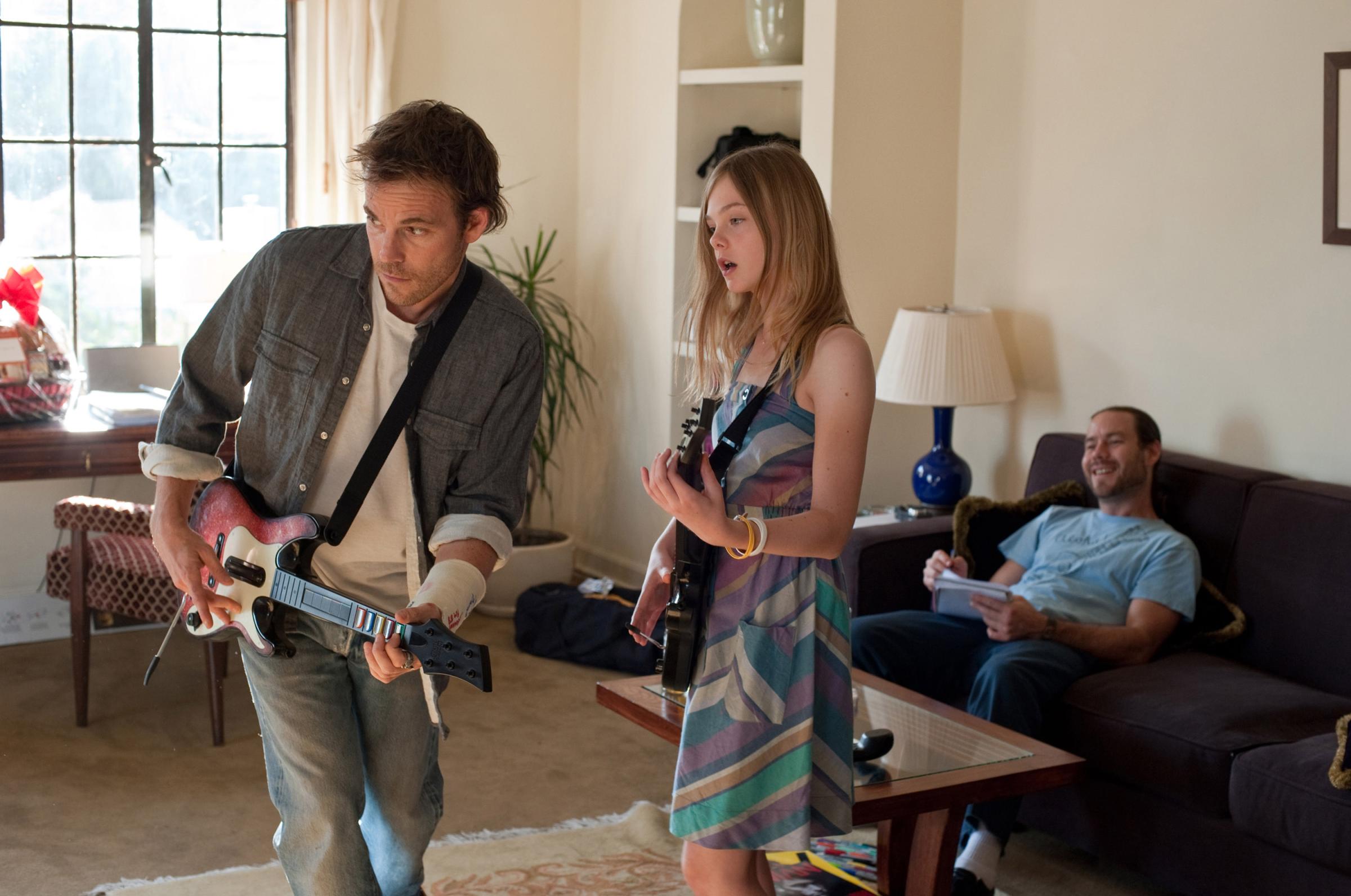
Sometime in the latter half of this decade, those who care about the cultural landscape began clamoring for more stories told by women, about women’s experience. Earlier in this decade, when Sofia Coppola’s Somewhere was released, I recall hearing far too many people characterize it as “slight,” which seemed to me just another way of dismissing stories about women’s experience—the same way 1950s movie melodramas were often decried as trifles by people who couldn’t grasp their greater significance. Somewhere traces the strands of a strained but affectionate relationship between a father, Stephen Dorff’s Johnny Marco, a self-absorbed actor, and his preteen daughter, Elle Fanning’s Cleo, a self-possessed woman-in-the-making. When left alone in a suite at the Chateau Marmont, Cleo rings up room service to ask for the ingredients to make macaroni and cheese, rather than the finished dish. She takes pleasure in the moment, and in pulling together her own meal; she’s more capable of taking care of herself than her father is of himself. Like all of Coppola’s movies, Somewhere is beautifully observed, and there are long stretches where, it may seem, nothing is happening. But in life, it’s so often the spaces that count; why can’t it be the same in movies? Somewhere takes place in the days, maybe even the moments, before a very young person folds up her girl self forever and becomes a woman. Blink and you’ll miss it.
Cave of Forgotten Dreams (2011)
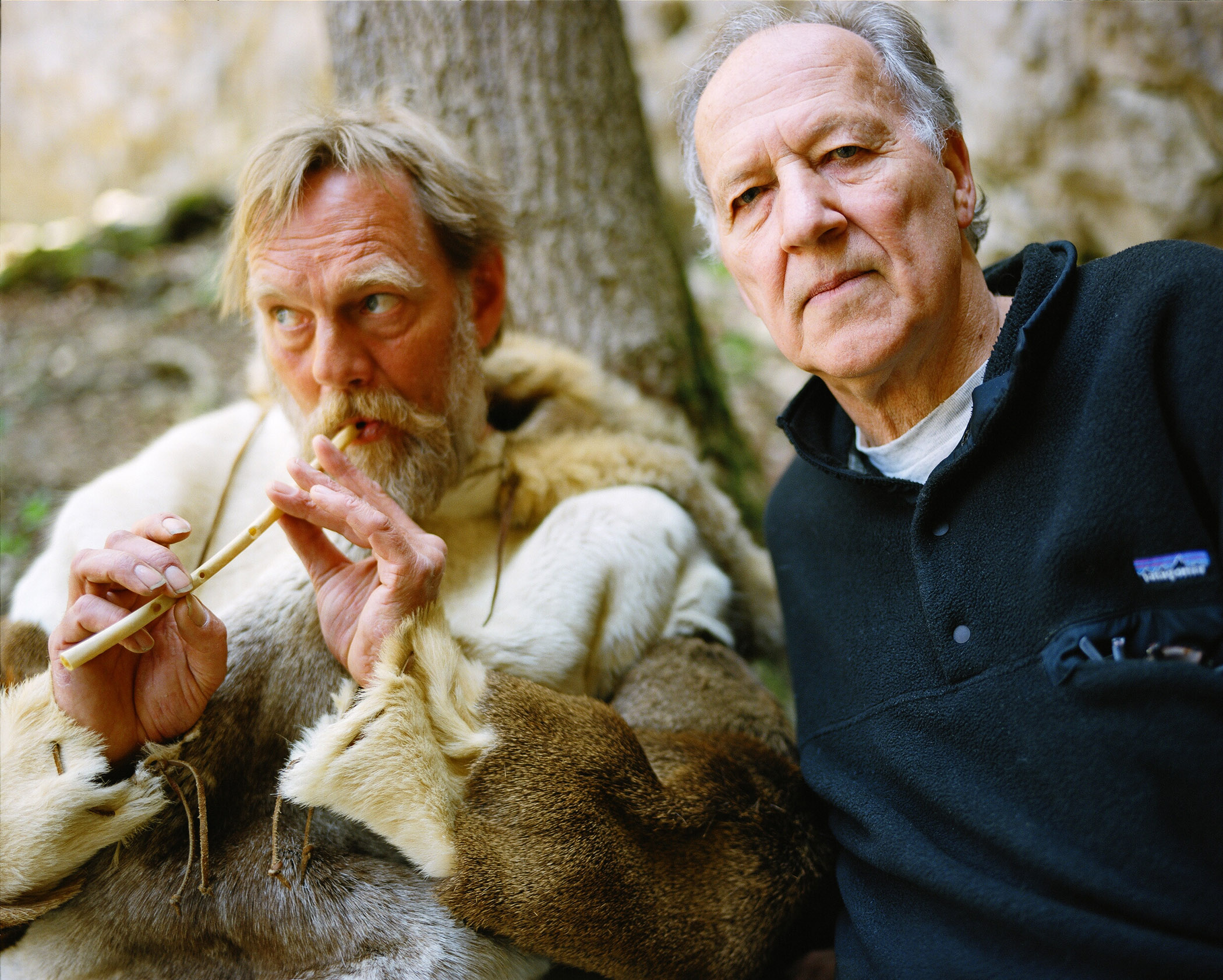
Werner Herzog, what a weirdo! But he’s our weirdo. In his gorgeous, searching documentary Cave of Forgotten Dreams, he brings cameras into France’s Chauvet Cave, examining Paleolithic drawings of trotting rhinos and horses running wild and free as a way of binding us with a long and winding thread of humanity. (The film was originally released in 3-D, which gave the images a subtly beautiful dimension, but you needn’t watch it that way to appreciate its gifts.) Herzog keeps a running patter over all of it, in a kind of existential stand-up routine. At one point he startles a sweet, serious French archaeologist by earnestly posing unanswerable questions about the artists who made these drawings so long ago: “Do they dream? Do they cry at night?” Of course, Herzog already knows the answer. Sleep connects us all, but sometimes it takes an ancient etched figure to bring our ancestors’ dreams back to us.
Melancholia (2011)
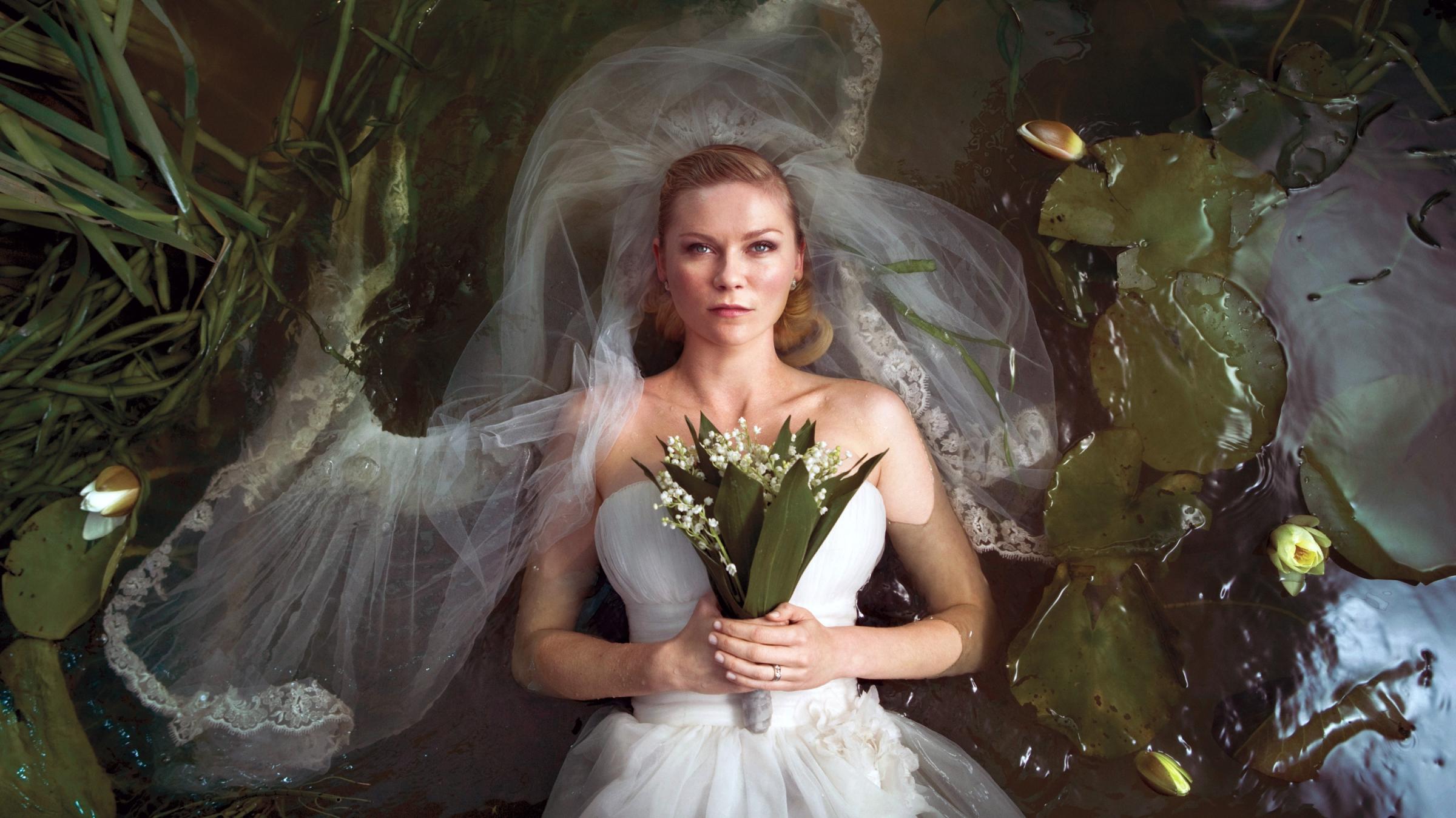
Lars Von Trier is a director who can’t help making enemies. But Melancholia may be his most inviting film; it’s certainly one of the most beautiful. Two sisters, Justine (Kirsten Dunst), a new but inexplicably unhappy bride, and Claire (Charlotte Gainsbourg), a wife and mother who seemingly has it all together, face the end of the world. When we first meet Justine, the dull blankness of her face suggests she’s fighting her own dark, interior self. Claire gets along in the outer world just fine, though she fears that a planet called Melancholia, quickly approaching the Earth, will end everything. She can’t bear that thought, but Justine welcomes it. The end of everything we know also means we no longer have to worry about any of it: it’s kind of like the maid’s day off, except it lasts an eternity. Melancholia is a heavy sigh of a movie, a gasp at the horrible wonder of it all—yet it’s so beautiful to look at that it feels decadent, almost luxurious. Von Trier himself calls it a comedy, and he’s including himself in the joke. If it’s true that misery loves company, this must be von Trier’s way of reaching out, of telling us it will all be OK. Maybe.
Before Midnight (2013)
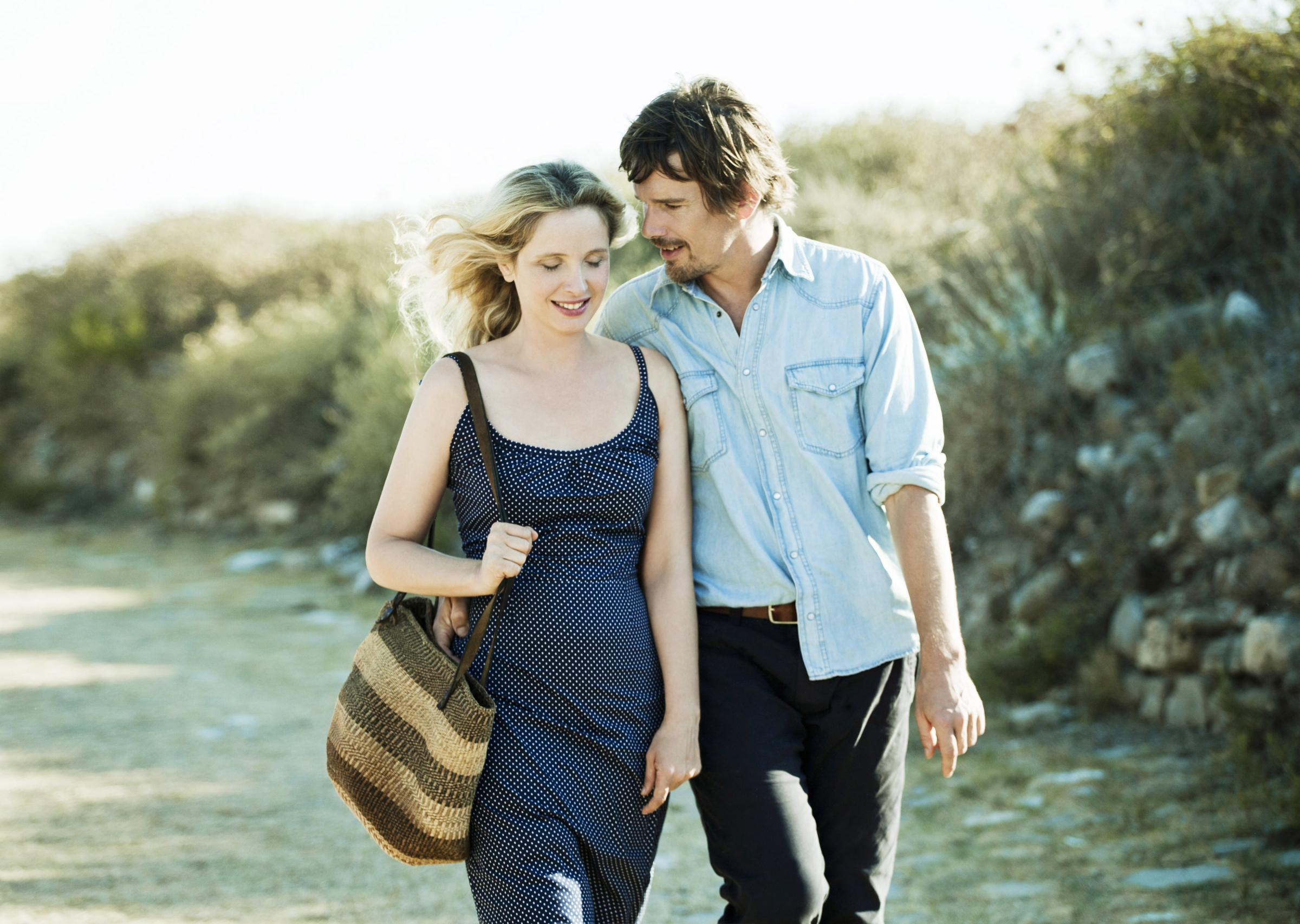
Richard Linklater’s 1995 Before Sunrise captured the seedling thrill of spending just one night with a new acquaintance and believing you’ll never see him or her again. Before Midnight is the bittersweet fruit of the happily-ever-after tree, a searching look at what can happen when you not only do see that person again, but end up in a committed partnership, with kids, and find yourself tackling all the adult problems that come along with it. In Before Midnight, the lovers we met in Before Sunrise, Julie Delpy’s Celine and Ethan Hawke’s Jesse, are trying to have a holiday in Greece. But Celine, stressed out from motherhood and just everyday living, lashes out at Jesse for failing to truly see her. Bewildered, he listens—but there seems to be a chance he can’t break out of his own helplessness. Few movies capture so beautifully—with a few laughs, no less—what happens when communication between two people who love each other becomes dangerously fractured.
Phoenix (2014)
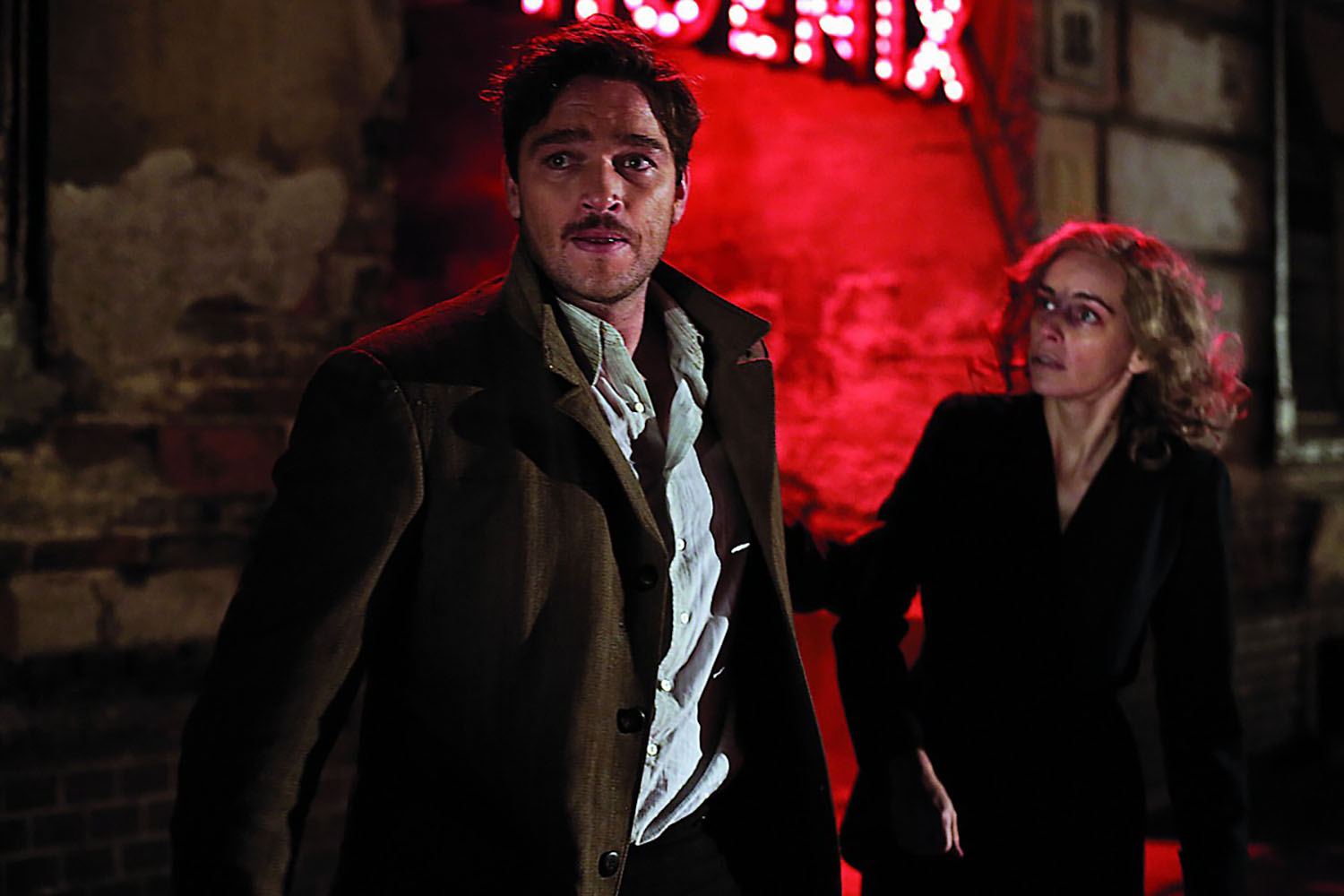
German director Christian Petzold specializes in complex movies about human expectations, desires and longing, and the most beautiful of these is Phoenix, a near-perfect movie that explores the vast possibilities of traditional melodrama while also finding new riches. Adapted from French crime writer Hubert Monteilhet’s 1963 novel Return from the Ashes, but also a riff on Alfred Hitchcock’s Vertigo, Phoenix tells the story of Nelly Lenz (played by the extraordinary German actress Nina Hoss), a woman who has survived Auschwitz but whose face has been disfigured. A plastic surgeon reconstructs it, though it still isn’t exactly the face she had before, the one she longs for. Feeling like a stranger to everyone including herself, Nelly drifts through half-demolished postwar Berlin, searching for her lost husband, Johnny (Ronald Zehrfeld). When she finds him, he doesn’t recognize her—he sees only what he wants to see, and it has nothing to do with Nelly’s desperate hopes. Phoenix is a mystery with a warning built in: people aren’t always what we want them to be. It’s also an entreaty to trust what our eyes tell us—even when it’s not what our heart wants to hear.
John Wick (2014)
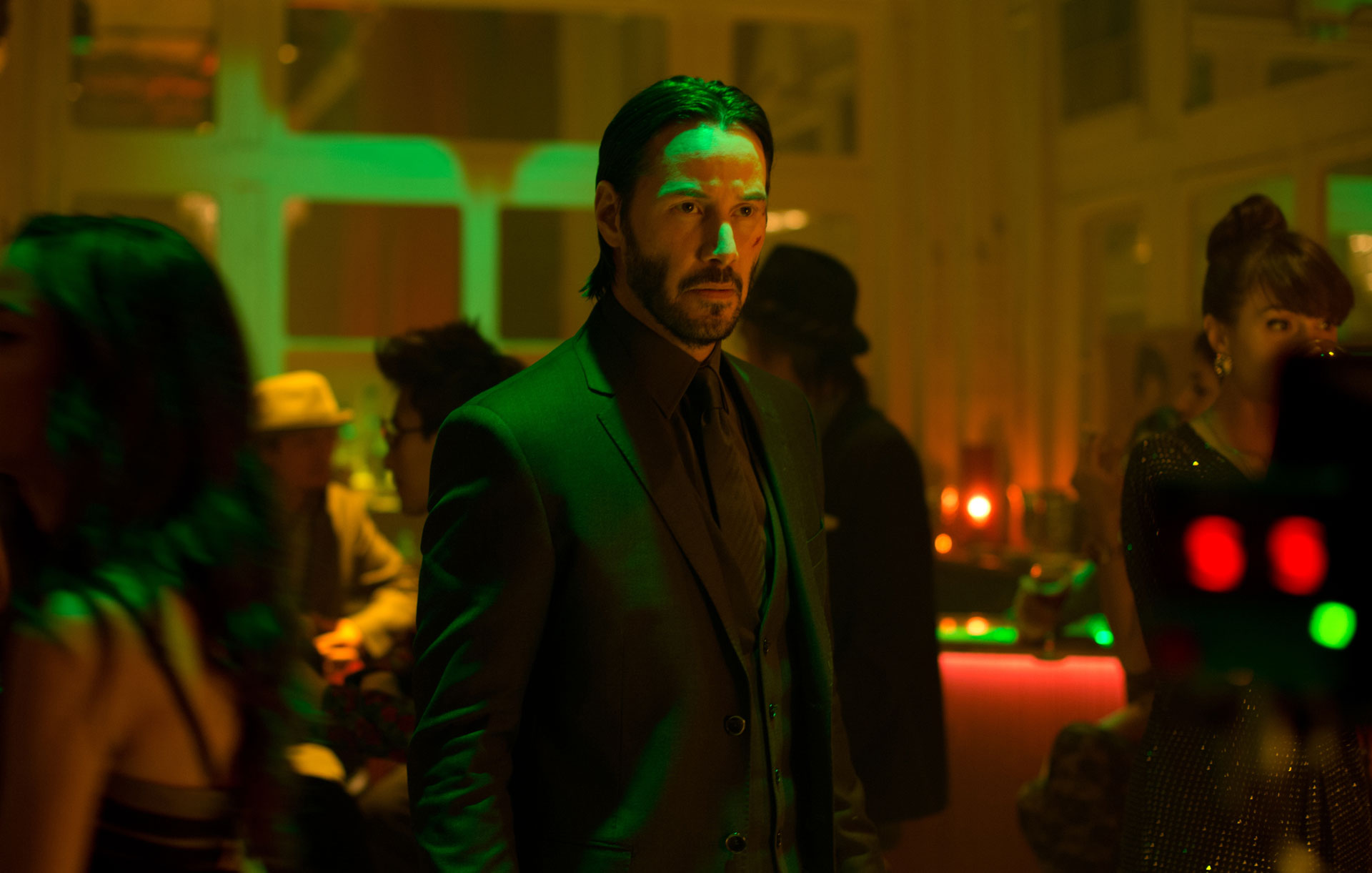
John Wick, directed by Chad Stahelski and David Leitch, begins with a horrific puppy murder (which at least happens off-screen) and ends with a kind of benediction. In between, its star, Keanu Reeves, moves through an undulating revenge plot that involves smoking a whole bunch of Russian baddies. And oh, how he moves! Reeves is one of our finest action stars, perhaps among the best of all time, in a line tracing back at least to Douglas Fairbanks. Much of that has to do with his lithe physicality, his way of working through a routine of kicks and punches with grace and vigor. Reeves’ subdued wit, the way his ultra-serious façade barely masks a sly wink, is part of the package, too. It doesn’t hurt that the fight scenes in John Wick are beautifully orchestrated: Stahelski and Leitch are both veteran stuntpeople themselves, so they shoot the action to showcase the glory of human movement. There’s no muddy fast cutting, no excessive CGI to “improve” on what mere bodies can do. Action films, done right, are one of the great pleasures of moviegoing, and John Wick—violent, sick as hell, and often terrifically funny—has it all.
Selma (2014)
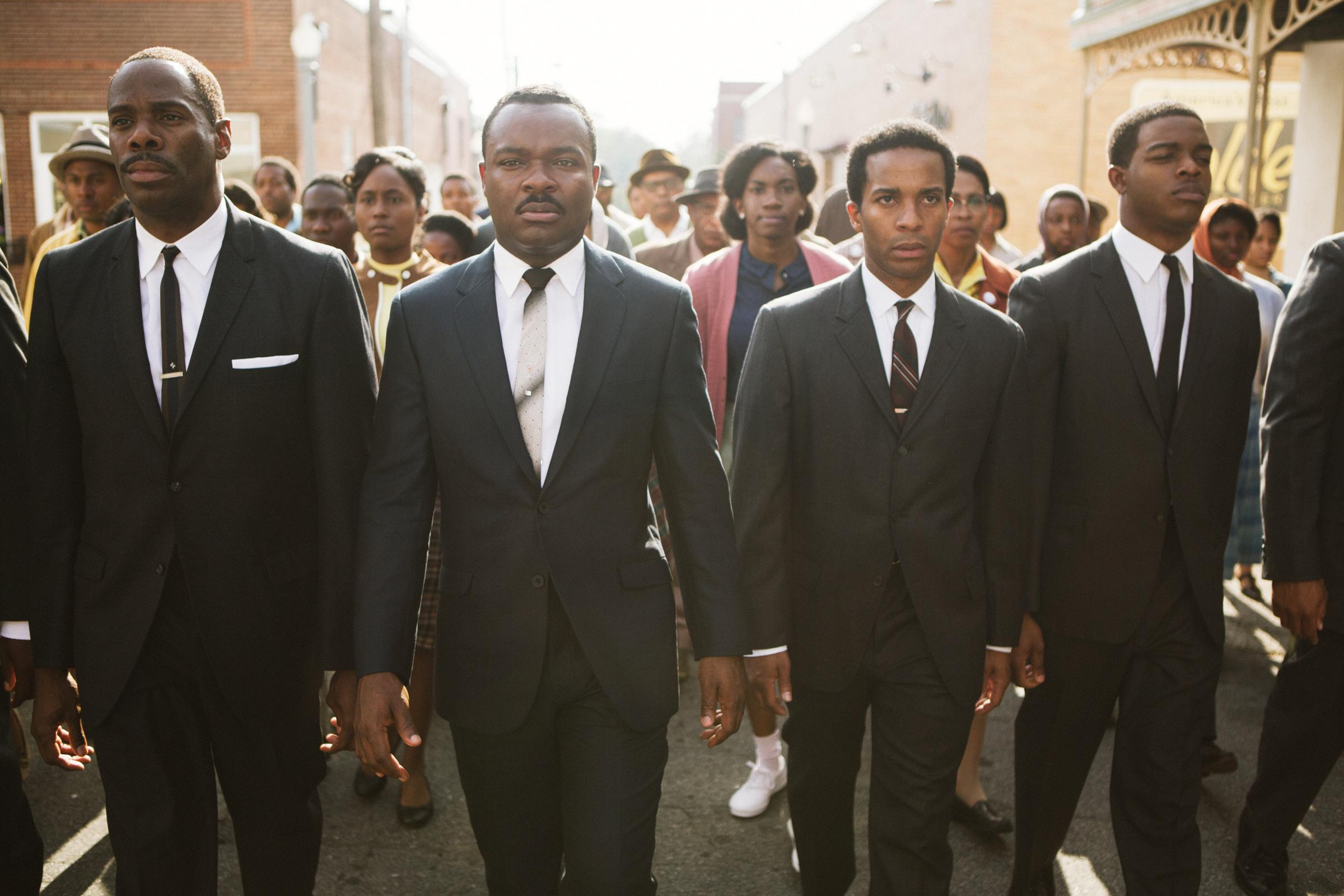
Ava DuVernay’s Selma arrived in 2014 without a lot of advance buzz or chatter. Yet it came along when it was sorely needed, in the wake of the killings of Michael Brown, Eric Garner and Tamir Rice at the hands of police officers, not to mention the June 2013 dismantling of the Voting Rights Act, the landmark 1965 ruling prohibiting racial discrimination in voting. Fast-forward just a few years: Selma, a passionate and meticulously detailed historical drama, has only become more relevant, and more urgent. Selma tells the story of the three 1965 marches, from Selma to Montgomery, Alabama, led by Martin Luther King, Jr. (played, with deeply human gravitas, by David Oyelowo) as a protest against restrictions preventing African Americans from registering to vote. DuVernay uses that framework to dramatize some of the most significant moments in the history of the Civil Rights Movement, including the murder, at the hands of white supremacists, of four little girls in a Birmingham church in 1963. Nothing about Selma is gratuitously graphic, but you feel the weight of every act. It’s a film for then, for now, for tomorrow.
Moonlight (2016)
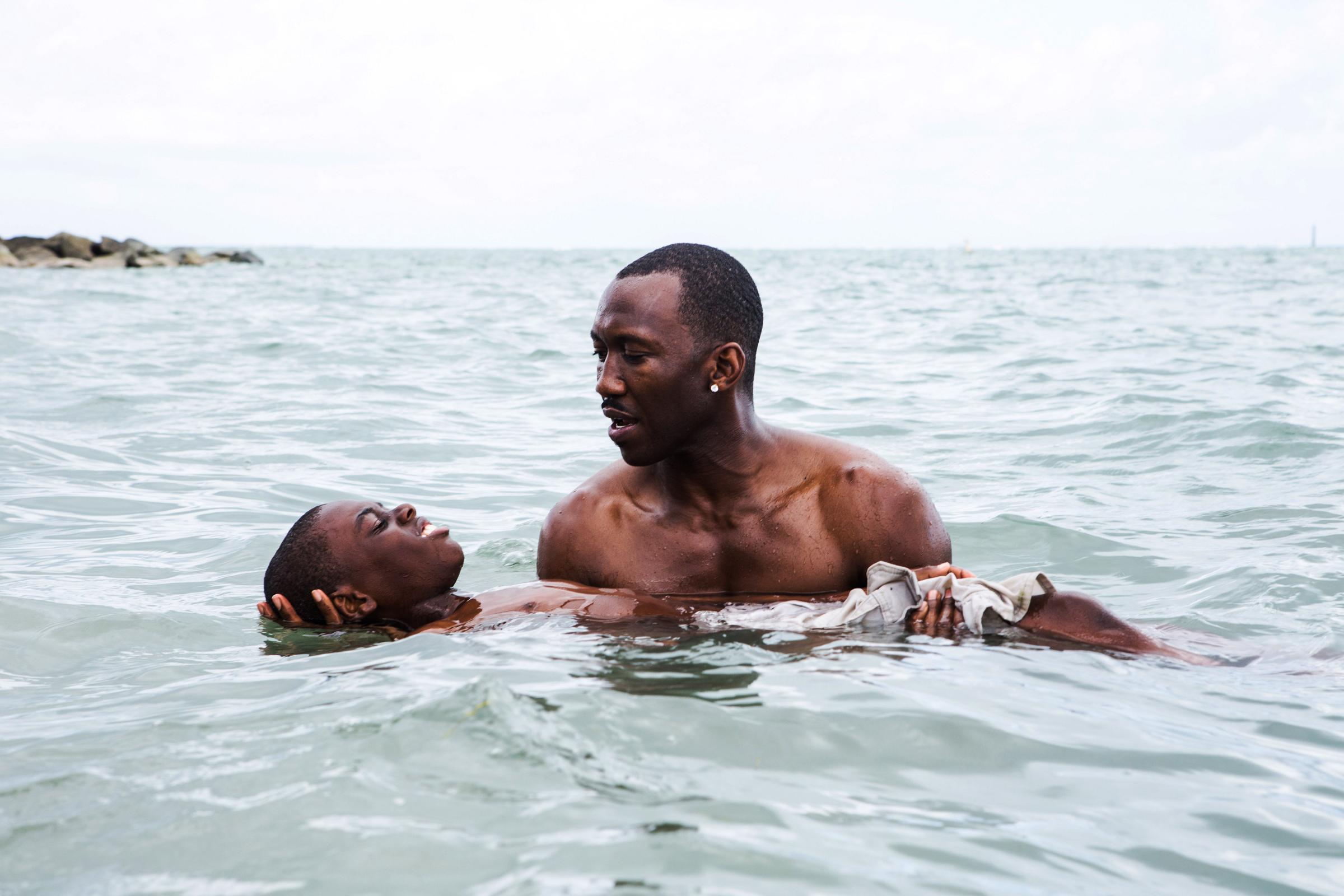
Barry Jenkins’ Moonlight—adapted from a short play by Tarell Alvin McCraney—is a coming-of-age movie, a love story and an exploration of the ways humans protect themselves. It’s also about how those barriers can be brought down in ways we least expect. The story follows one character from boyhood to adulthood: he’s played by three actors, Alex R. Hibbert, Ashton Sanders and Trevante Rhodes, as he grows from a scrawny, insecure kid with problems at home to a beefed-up, closed-off adult who’s physically robust but still emotionally fragile. This is such a calm yet precise piece of filmmaking that you’re barely prepared for its quietly sensational ending. Moonlight leaves you feeling both stripped bare and restored, slightly better prepared to step out and face the world of people around you, with all the confounding challenges they present. There’s not much more you can ask from a movie.
The Lost City of Z (2017)
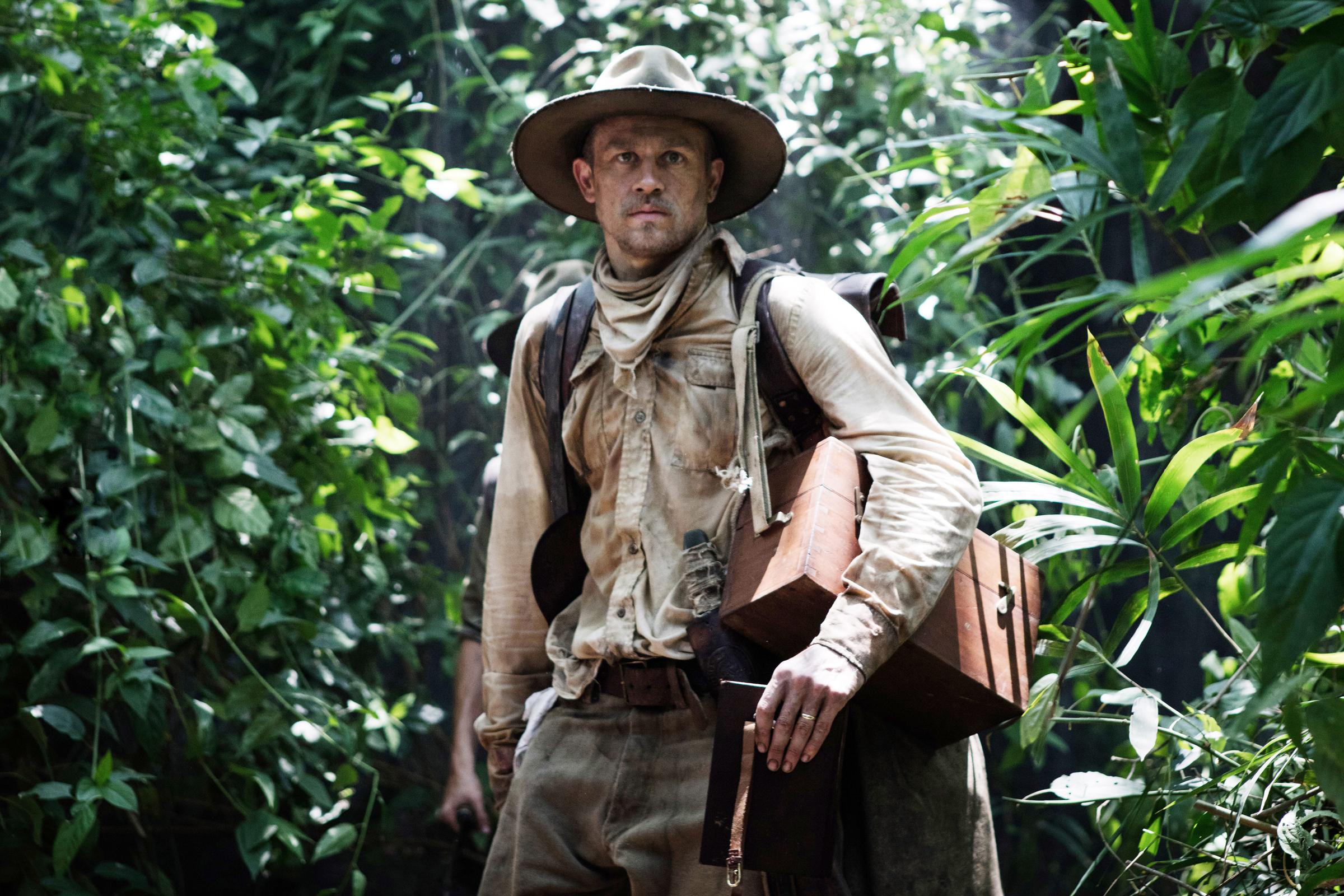
Director James Gray is an old-style craftsman: he’s unafraid of intense emotions, written out in a filmmaking language that’s bold yet fine-grained. In this adaptation of David Grann’s 2009 book, Charlie Hunnam stars as real-life British explorer Percy Fawcett, who, in 1925, disappeared in the Amazonian jungle while seeking a long-lost civilization. Others doubted its existence, but Fawcett was sure in his bones, and in his heart, that it was real. He devoted his life to locating it—though if this is a story of obsession, it’s not one of folly. Gray seduces us with beauty and visual grandeur, showing us squeaky bats flapping through tree boughs for their nighttime flight, or a sacred hillside ritual illuminated by the grace of flickering torches: we see what Fawcett sees, and like him, we reach out to the mysteries of this half-natural, half-mythical world. Pictures with the grand sweep and dreamy energy of The Lost City of Z don’t come along every year—they barely come along at all. This is itself a message in a bottle, a missive from a lost city of movies.
Roma (2018)
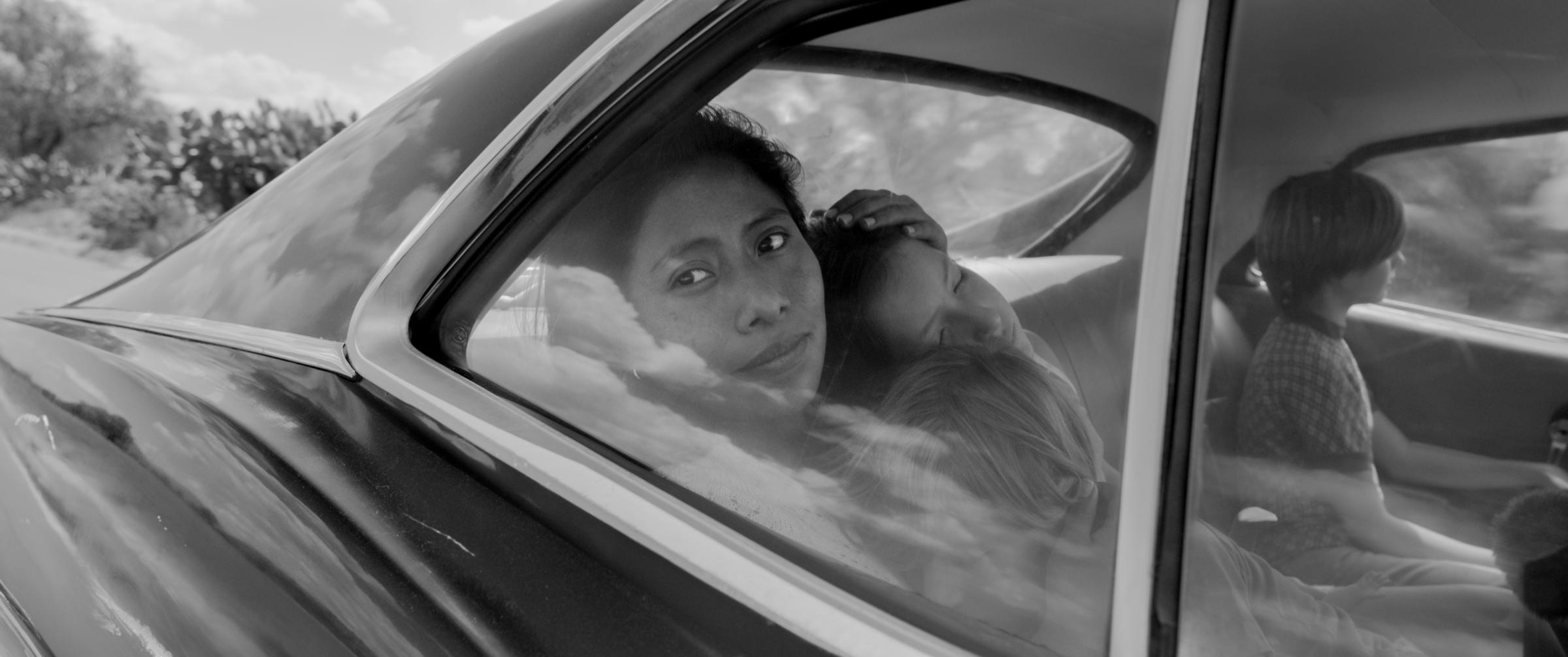
Alfonso Cuarón is meticulous about every film he makes, but his real gift is that he puts human nature above filmmaking, following in the tradition of neorealist filmmakers like Vittorio De Sica and Satyajit Ray. His extraordinary film-as-remembrance Roma is drawn from his own upper-middle-class upbringing in Mexico City in the 1970s, but it’s hardly about him at all: His focus is on the women who raised him, particularly a servant named Cleo, played with incandescent grace by first-time actor Yalitza Aparicio. Cleo is half visible and half not: In some ways, she’s part of the family. But she’s also called upon to do menial tasks, like cleaning up after the family dog. We see what her life is like in her off-duty hours: she has a boyfriend who seems to care for her, but that love has its limits. When she’s betrayed, her suffering pierces us as well. Roma is a film of such delicate power that it feels strangely wrong to characterize it as “great,” though that’s probably what it is. Glorious and tender, it’s a movie that invites us into a specific world of memory—and although these memories belong to someone else, by the end of the film, they somehow belong to us too.
More Must-Reads from TIME
- Why Trump’s Message Worked on Latino Men
- What Trump’s Win Could Mean for Housing
- The 100 Must-Read Books of 2024
- Sleep Doctors Share the 1 Tip That’s Changed Their Lives
- Column: Let’s Bring Back Romance
- What It’s Like to Have Long COVID As a Kid
- FX’s Say Nothing Is the Must-Watch Political Thriller of 2024
- Merle Bombardieri Is Helping People Make the Baby Decision
Contact us at letters@time.com